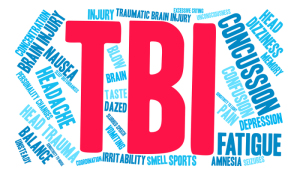por
John R. Fischer, Senior Reporter | August 28, 2017
The National Neuroscience Institute (NNI) is partnering with Nanyang Technological University, Singapore (NTU Singapore) over the next three years to develop new forms of technology for treating neurological conditions.
The collaboration will consist of a series of projects, fellowships and programs between the two that aim to create systems and devices for identifying and treating forms of dementia, stroke and traumatic brain injuries. The technology developed will utilize algorithms, artificial intelligence and CT to address these issues.
“This partnership is committed to developing, translating and applying new technologies that make a real difference to people suffering debilitating neurological conditions, like Alzheimer’s disease, Parkinson’s disease, stroke and traumatic brain injury,” Russell Gruen, director of HealthTech NTU, told HCB News. “That means getting them into clinical practice, and commercializing them is an important step in making them available.”




Ad Statistics
Times Displayed: 27697
Times Visited: 616 Stay up to date with the latest training to fix, troubleshoot, and maintain your critical care devices. GE HealthCare offers multiple training formats to empower teams and expand knowledge, saving you time and money
One project entails the development of an algorithm for precisely identifying tissue during brain surgery as a way of helping physicians restore neurological functions of patients with Parkinson’s disease and other neurological conditions.
The other will focus on building an artificial intelligence system that analyzes CT scans to differentiate between and correctly identify different forms of traumatic brain injury. Gruen says the use of CT will assist doctors in accurately diagnosing and prescribing treatment for conditions based on scans, and will reduce time in initiating treatment.
“A CT scan is digital information, where every image is made up of many, many pixels, and computers can learn patterns for what is normal and abnormal,” he said. “Machine learning and artificial intelligence show promise in assisting technicians to optimize the scans that are taken in the first place, and assisting radiologists with improved accuracy and efficiency of image reading and interpretation.”
The agreement also includes a one-year fellowship and a student attachment program.
NTU’s Institute of Health will run the fellowship in which up to two neurosurgical residents from NNI will work full-time with NTU professors. Each will receive $100,000 to complete and commercialize their projects.
The student attachment program will consist of engineering students from NTU working alongside neurosurgeons at NNI and learning about medical practice and clinical medicine.
Other collaboration efforts are also underway for developing technology to treat conditions of the brain. For instance,
Colorado State University's Flint Animal Cancer Center and Synaptive Medical Inc. announced in May that they are teaming up to develop imaging and sensing technology for treating brain tumors.
The two projects specified above will take place during the first year of the fellowship.

